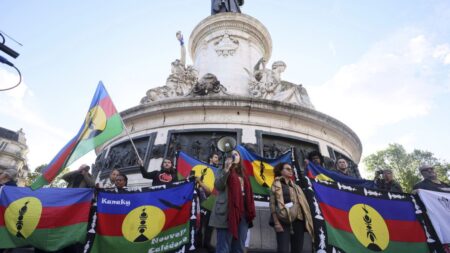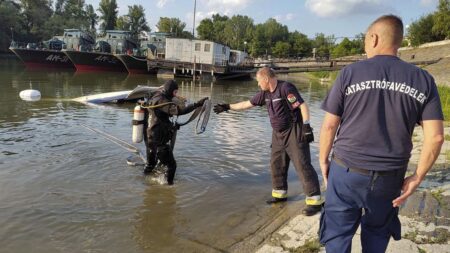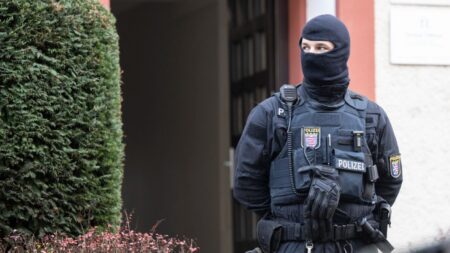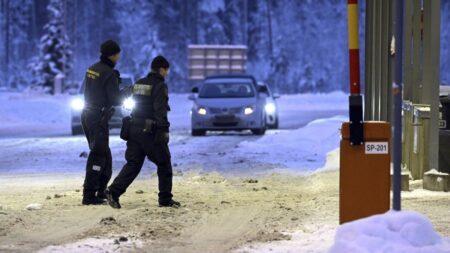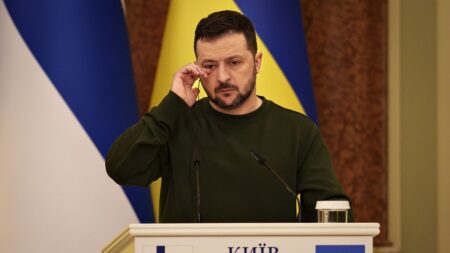The opinions expressed in this article are those of the author and do not represent in any way the editorial position of Euronews.
As antisemitism has risen to record levels all over the world in recent months, the Bulgarian government is to be commended for understanding rapidly evolving attacks on Jews and the Jewish State, Robert Singer and Prof Rumyana Marinova-Christidi write.
In recent years, the issue of antisemitism has been taken more seriously around the world, especially as hate against Jews keeps rising.
The adoption of national plans to combat antisemitism and the appointment of special envoys for monitoring and combating antisemitism have displayed an increased sincerity on the part of leaders in Europe, North America and elsewhere in dealing with one of the oldest and fiercest hatreds in history.
However, few have gone past the declaratory into the operational, and taken such a holistic approach, as the Republic of Bulgaria.
Taking matters seriously
In 2017, Bulgaria was one of the first countries to adopt the International Holocaust Authority’s (IHRA) Working Definition of antisemitism, a year before it was even a formal member of IHRA.
The same year it appointed a national coordinator for combating antisemitism. As opposed to many other nations, the coordinator or envoy was not a low-ranking official with little power or authority but was given to the deputy foreign minister.
The following year, an agreement was signed with major national and international Jewish organisations which provided an opportunity to establish a mechanism for regular consultation and cooperation to exchange information, experience and best practices in the field of preventing and countering antisemitism and improving the security of the Jewish community.
In 2021, Deputy Foreign Minister and National Coordinator for Combating Antisemitism Georg Georgiev held a ceremony where nine leading Bulgarian universities adopted the IHRA Definition of antisemitism.
All of these and many other actions have made an important impact on the country.
The Holocaust and familiarity with the Jewish community are now widely taught in schools, and Sofia University is the only university in Southeast Europe to have a four-year bachelor’s program in Jewish Studies, protected by the Ministry of Education and Science.
Every year, on 10 March, there is a March of Tolerance in Sofia to commemorate the rescue of the Jews of Bulgaria during the Holocaust. This year, it was attended by high-level ministers, members of parliament, academics and other officials.
These activities alone dwarf most other countries, but with a rise in antisemitism during the first half of last year, the government decided to go a step further.
Bulgaria has a plan
On 18 October 2023, the Bulgarian Council of Ministers adopted a five-year National Action Plan to Combat Antisemitism (2023-2027).
The starting point for the draft national plan was a nationally representative opinion poll conducted early in 2022.
The Ministry of Justice established an inter-institutional working group with the task of preparing amendments in the legislation in two directions: combating today’s manifestations of antisemitism and guaranteeing the security of Bulgarian Jews.
The group will revise the current penal code in the part dealing with crimes driven by prejudice, hate speech and discrimination and its work will be in accordance with the international standards in the field of human rights.
Already, inter-ministerial representatives and relevant experts from the Ministry of Justice, Ministry of Foreign Affairs, Ministry of Education, and Ministry of Interior have met and are intensively involved.
This is also with the assistance of and in cooperation with Jewish organisations like the Organisation of the Jews in Bulgaria “Shalom” and the Organisation of Zionists in Bulgaria and its President Nikolay Galabov.
In basketball terms, this is a “full court press”.
It is taking a top-down approach, meant to reach every relevant aspect of Bulgarian society to ensure that there are the necessary tools with which to combat antisemitism.
Protecting those fearful of hate
This is having an effect on the street as well.
The Lukov March, an annual procession in honour of Hristo Lukov, who in the 1930s and 1940s was the leader of the neo-Nazi Union of Bulgarian National Legions, was blocked this year by the police acting on the orders of Sofia Mayor Vassil Terziev, with the support of the government.
The Lukov March is one of the most notorious neo-Nazi marches in Europe, and it has been banned and ordered off the streets of Sofia.
The rights of Nazis to march are not considered to take precedence over those offended and fearful of the hate that has traditionally been preached during these marches.
This is a strong message that should be adopted elsewhere, especially during days when hate marches and demonstrations are allowed to take place on the streets of Europe and North America unimpeded.
The Bulgarian government is to be commended for understanding rapidly evolving attacks on Jews and the Jewish State.
It is constantly improving and developing to try and keep up with, or even ahead of, threats against Jews. Though, there is still more that can and should be done.
In fact, as antisemitism has risen to record levels all over the world in recent months, there is a lot that can be learned from Bulgaria’s non-nonsense approach to antisemitism, hate and prejudice.
Robert Singer is the Chairman of the Center for Jewish Impact and Honorary Madara Horseman of the First Degree, awarded by the President of Bulgaria.
Associate Prof Dr Rumyana Marinova-Christidi is the Head of Jewish Studies (Hebraistika) at Sofia University’s Faculty of History.
Read the full article here



